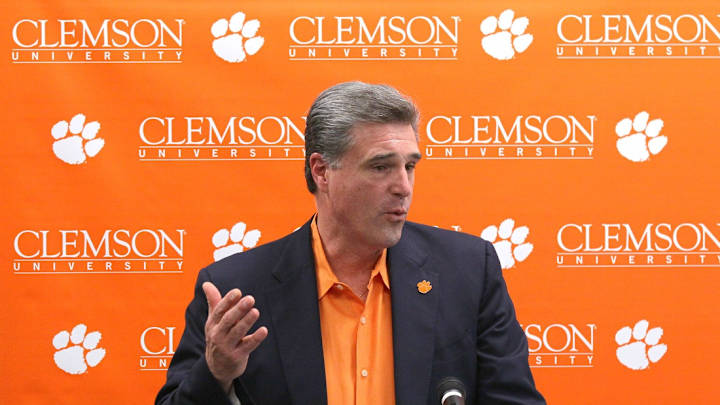Is It Too Soon To Worry if We'll Have A 2020 Football Season?

Last week I was sitting in a dentist’s chair and got the question:
“So…….Are we going to have a college football season?”
I gave a confident “yes,” the only variable being whether or not there would be fans in the stands when the games were actually played.
Today I’m wondering if I spoke too soon.
On June 1 college football facilities were reopened to allow players to return to campus. It was done to begin a long training/testing process that will hopefully conclude with the on-time start of the college football season on August. 29.
A big part of bringing the athletes back to campus early was to test them for the coronavirus and to quarantine those who tested positive.
So it stands to reason that if there is a large increase in the number of players being tested, there will be a corresponding increase in the number who test positive.
I was warned that the numbers of positive tests would go up, maybe dramatically, in the short term. I was also warned that those rising numbers would make the public uneasy. That’s because the psychology of dealing with this virus has become a story that is almost as big as the virus itself.
“There will come a time when people won’t flinch as much at these numbers,” one Power Five athletics director told me. “But we’re not there yet.”
But I’m not completely sure that the increase in testing accounts for the headlines we’ve seen the past two weeks:
**--Sports Illustrated reported that at LSU least 30 players have been quarantined because of the virus. Not all who were quarantined had tested positive for the virus.
**--Clemson has quarantined 23 players and two staff members who have tested positive for the virus.
**--Kansas State had 13 players test positive and has shut down football operations for the next two weeks.
**--On June 12 Houston shutdown football operations after six players tested positive.
With the start of college football season just 69 days away, I asked this question point-blank of a Power Five director of athletics:
“Is it too soon to start worrying about whether or not there will be a 2020 college football season?”
“No,” he said.
Dan Radakovich, the director of athletics at Clemson, said it was not an easy day when he learned that 25 players and staff would have to go into quarantine.
“But this is the way the process is supposed to work,” he said. “You bring your student athletes in and you do your testing. And we did a lot of testing. But the fact is that we’re working through this and our young men and women are getting the best possible care. We still have a long time before the season starts.”
Another factor: These are voluntary workouts and each day when they are over, the players are free to do and go as they wish. A number of the players now quarantined at LSU had their infections traced back to Tigerland, a student-oriented night life area, according to a report in The Advocate of Baton Rouge. Over 100 positive cases of the coronavirus were traced back to Tigerland by local health officials.
“They are with us only about two hours a day,” an AD said. “What are they doing for the other 22 hours of the day? That’s a big concern.”
Absent living in a bubble like the NBA is considering, it’s going to be hard to control new infections. These are students, not professional players with a contract who are being represented by a union.
“We’re a bunch of 60-year-olds pontificating about what a 20 something year old should be doing,” said Radakovich. “We know what our 20-year-old selves would be doing in these circumstances. That’s just the reality of the situation.”
Tennessee athletics director Phillip Fulmer, the Hall of Fame football coach, said his school is working towards a 2020 season that will start on time. He praises how he and his fellow SEC ADs have been working around the clock trying to get the games played safely. There is a plan and the old coach in him says you’ve got to work the plan.
“The good thing with this situation is that you’re not in it alone,” said Fulmer. “We are all going through this together. And we are learning something new every day.”
The good news is that this is June 23, not July 23. There is still time.
But one gets the sense that the next 30 days are going to pass quickly and by Aug. 1 some serious decisions will have to be made.
Based on my conversations with athletics directors, one thing is for sure: If we do have a 2020 football season it will not look like anything we have ever seen. If you want things in the college football world to go back to normal, you’ll have to wait. There will be nothing normal about this year.
“The word moving forward is ‘flexible,’” said Radakovich. “We have to be flexible and ready to react to what happens next.”
